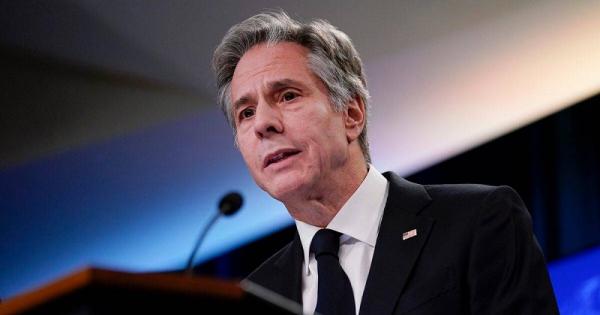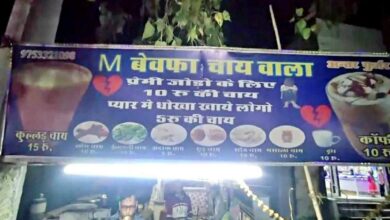better use of parliament session

The monsoon session of Parliament ended four days ahead of schedule. In the Seventeenth Lok Sabha, that is, since May 2019, this has happened for the seventh time that the session was terminated before the scheduled time. This also includes the time of the corona epidemic, close to two years, when the conditions were very odd. Then if the session was not held or the session ended prematurely, then there was a valid reason for that. But right now, just before the Amrit Festival of Independence, the premature end of the session, less than a month ago, is astonishing. The reasons given for this are also shocking and disappointing.
Nothing was said officially from the government, but in the media reports quoting government sources, two reasons were given. The first reason was that the government was not left with legislative business, so the session was terminated. The second reason being told is that there were two holidays during the last week of the session, so the MPs wanted the session to end early. This is a very childish thing. In schools, children want that if there is a holiday for two days, then they should take two more days so that the whole week becomes a holiday. Government employees also do this. But MPs are not government employees. He is the creator of Bharat’s fortune. Those 780 people have to decide about the fate of 140 crore people of the country. They take vacations on such pretext, it is not a good thing.
Especially in this session, the thought of prematurely adjourning the session indefinitely should not have been even thought of as the first two weeks were marred by similar uproar. The opposition had been demanding a debate on the issue of inflation, unemployment and imposition of GST on food items from day one, but the government was deferring it for one reason or the other. Due to this there was a deadlock in both the houses. The conflict escalated so much that 27 MPs of both the houses were suspended. During this, the elections of the President and the Vice President were also held and the MPs were busy in that too. So, overall there was some business in the third week and the session ended on the first day of the fourth week. At the end of the session, outgoing Chairman of Rajya Sabha M Venkaiah Naidu himself said that in 16 sittings, only 35 hours of work was done and 47 hours were wasted. The situation was slightly better in the Lok Sabha. There was a little over 44 hours of work and close to 37 hours of wasted time. Despite this, the session was called off four days ago.
The argument cited by government sources that the government did not have legislative functions is also not entirely correct. Congress Chief Whip in Rajya Sabha Jairam Ramesh told that the government had to introduce the Wildlife Protection Amendment Bill in the Rajya Sabha. The bill has been passed by the Lok Sabha and was to be introduced in the Rajya Sabha. Ramesh said he had made preparations for the debate on Wednesday, the day after Tuesday’s Muharram holiday, but the government ended the session on Monday. Generally, if a bill is passed in one house in a session, it is sent to the other house in the same session and is also passed. But this time it did not happen in the case of at least two bills. Seven bills were passed in Lok Sabha but only five bills were passed in Rajya Sabha.
Apart from the legislative business, there are many other functions in the Parliament session. Questions are asked on important issues and ministers answer them. Despite the uproar, the answers to the questions are laid on the Table of the House, from which the people of the country get information about many things. Apart from this, the burning issues facing the country are discussed inside the Parliament. After two weeks of deadlock, the government got the discussion on inflation, but apart from that there are many important issues, which could not be discussed. The government has reversed the decades-long process of reinstatement in the army. Regular reinstatement has been replaced by the Agneepath scheme, under which one will get four years of service in the army. This is a very big decision, which was taken by the government when the Parliament was not in session. In such a situation, was it not the responsibility of the government to inform the Parliament about it and get it discussed? Many opposition leaders had given notices for discussion on this important issue, but the government did not get the discussion done.
Think, the opposition parties have been demanding a discussion about China’s infiltration and the ongoing standoff on the border for the last two years, but the government was not ready for it either. The opposition had demanded a discussion on the issue, alleging misuse of central agencies. The opposition was hurt that during the session, Leader of Opposition in Rajya Sabha Mallikarjun Kharge was summoned by the ED and questioned for seven hours but the presiding officer did not defend him. This is an important issue. The manner in which the action of central agencies, especially the ED, is being done against the leaders of opposition parties is not normal. This should have been discussed. But the government was not ready for this. Surprisingly, the government kept blaming the opposition all the time for the impasse in Parliament. The question is, is the responsibility of running the Parliament only with the opposition? When did the government try to run the Parliament smoothly? Even when 27 MPs were sitting on dharna no one from the government side went to talk to them! Keep in mind that the government has more responsibility than the opposition to run the parliament smoothly. He should take measures to make better use of the Parliament session.




